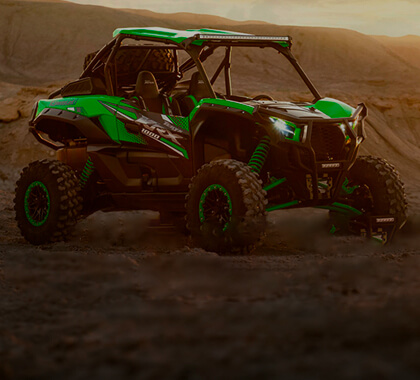Consider These Factors As You Shop
Helmet kits offer comprehensive protection and communication, making your ride more enjoyable and stress-free. These factors will guide you in making the right choice.
Helmet Type & Riding Style
One of the first things to consider is the type of helmet you own. You can get the strictly off-road full-face or open-face helmets, which are ideal for tackling rough terrain with their protective visors and breathable design. Both helmet types provide enough protection depending on your riding style. The kit you choose will likely be designed for either of these helmet types.
Crew Size & Communication
Take into consideration the size of your crew when choosing a helmet kit. Group kits should include multiple helmets, headsets, or intercom systems, as this is ideal for staying connected with your crew. You should also note the helmet kit's communication range and features. Bluetooth connectivity, noise cancellation, and voice activation features will enhance your riding experience.
Comfort & Fit
Choose helmets with adjustable ventilation systems for optimal comfort in different weather conditions. Consider helmets with multiple padding options if you want to ensure a snug, secure fit. And where necessary, you can add helmet liners or cheek pads for a personalized fit and extra comfort.
Additional Features & Accessories
Consider what extra features the helmet kits you've chosen have. Features like Bluetooth speakers, intercom systems, adjustable helmet windshields, hydration packs, vents, and race air pump systems will ensure a smooth and comfortable ride.
Budget & Brand Preference
As you shop, set a realistic budget and explore helmet kits within your budget range. You should also buy only brands known for safe and quality products. Remember to pay attention to their warranty options and customer service reviews.
Safety Features
Remember to check your helmet to see if it meets the required safety features and has the necessary certifications. It should have at least one or all of the three - DOT, ECE, or SNELL certifications. Other contents of your helmet kits should also meet the required safety standards of their respective industries.





